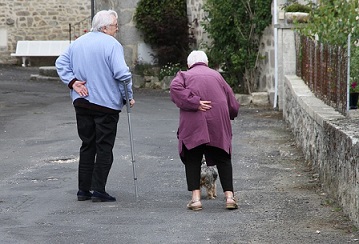 The elderly often get dehydrated without realising it because they do not realise that they are getting dehydrated due to the physical changes associated with aging, and therefore do not drink sufficient water on a regular basis.
The elderly often get dehydrated without realising it because they do not realise that they are getting dehydrated due to the physical changes associated with aging, and therefore do not drink sufficient water on a regular basis.
Various studies done of residents in long-term care facilities reported that around 31% of residents were dehydrated, and 48% of elderly patients treated at emergency departments and then admitted to hospitals showed signs of dehydration in their laboratory results.
Dehydration: A Hidden Risk for the Elderly
Dehydration, especially in the elderly, can either be due to a lack of water intake or due to excessive sweating, diarrhoea, loss of blood, prescription medication such as diuretics, or conditions such as diabetes.
Our response to thirst dulls as we grow older, and we also become more unaware of the signs of thirst, which increases the chances of dehydration. Our body fluids to body weight proportion is around 60% in men and 52% in women up to the age of about 40; after 60 it changes to just 52% in men and 46% in women. This is due to loss of muscle mass and a corresponding increase in fat cells as we age.
The kidneys’ ability to remove toxins from the blood progressively declines with age, which results in the kidneys not being as efficient in concentrating urine in less water and in the elderly losing more water than those who are younger.
Dehydration that is not diagnosed and treated can lead to a rapid but weak pulse, lowered blood pressure, and even loss of consciousness.
Signs and symptoms of dehydration:
- Bloated stomach
- Breathing faster than normal
- Convulsions
- Cramping in limbs
- Crying but with few or no tears
- Dry and sunken eyes with few or no tears
- Dryness of mouth; dry tongue with thick saliva
- Headaches
- Low blood pressure
- Rapid but weak pulse
- Severe cramping and muscle contractions in limbs, back and stomach
- Sleepiness or irritability
- Unable to urinate or pass only small amounts of urine; dark or deep yellow urine
- Weakness, general feeling of being unwell
- Wrinkled skin; no elasticity
It is important that you ensure that your elderly are drinking sufficient water on a regular basis. One way to do this is to make it easier for them to drink more water by investing in a water cooler so that they have easy access to filtered, chilled drinking water 24/7.
Purchase water coolers online or rent a cooler for your home or business in London. Get natural spring water, water cooler accessories and office water coolers.





